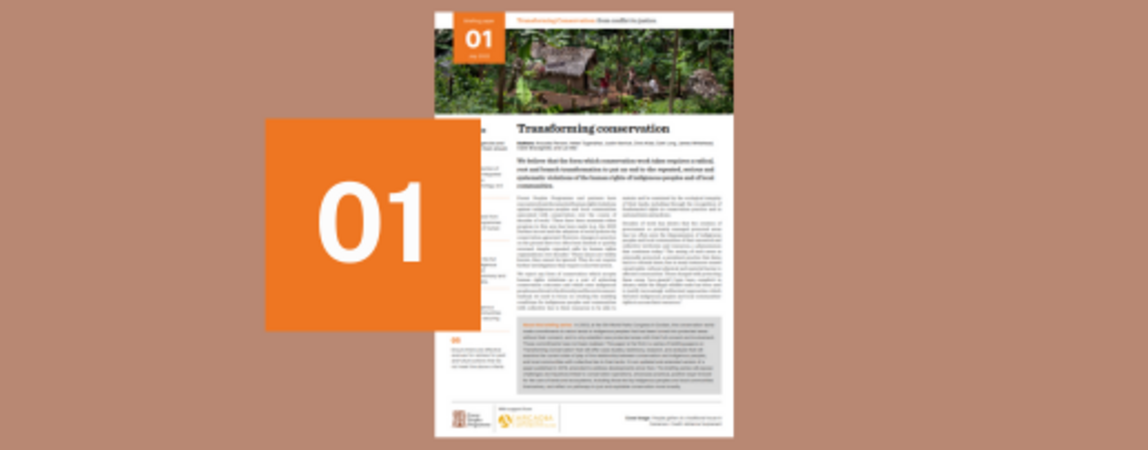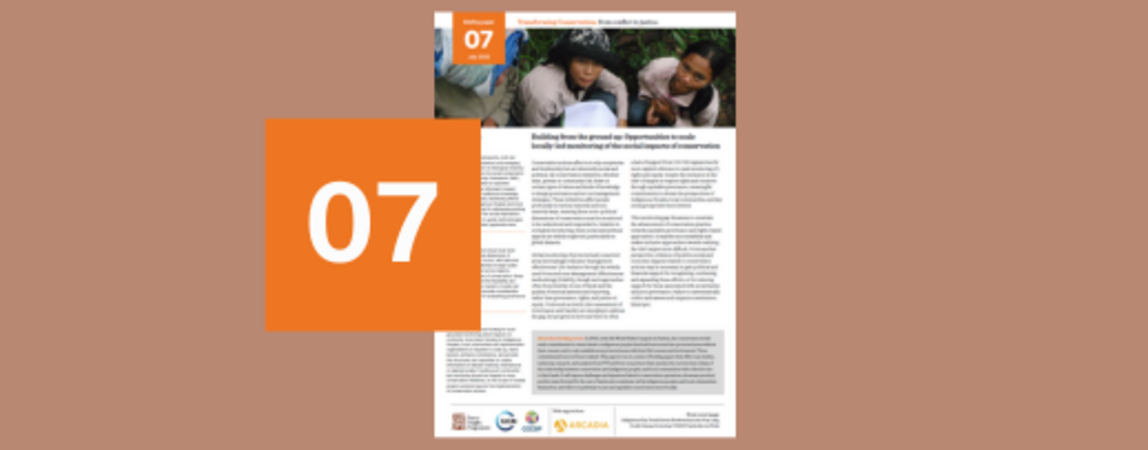
Transforming Conservation
From conflict to justice
A briefing series from FPP and partners
"Transforming Conservation: from conflict to justice" is a briefing series from FPP and its partners that challenges the exclusionary model of conservation and offer ways that indigenous peoples and other communities with strong ties to their lands can lead on caring for those lands.
These briefings call attention to both the damage caused by inappropriate policy and to progressive opportunities to restore and support alternatives. We hope that they will contribute to the debate around rights-based, community and people-centred conservation and will offer practical ways forward.
If you want to work with us to protect our forests and lands you must understand us and adapt yourself to our ways of working and living".
Tim Emini’s comment sums up what needs to change in the world of biodiversity conservation. For far too long the dominant voice in conservation has tended to be European or North American and the product of formal education and a culture that is to a large extent in denial about the damage it has done to the planet.
Tim is putting the case for turning conservation on its head – for starting from the place of knowledge occupied by the indigenous peoples and communities who have a deep connection with the lands and living things that they have cohabited with for many generations.
Many of our partners and the communities we work with are suffering from the consequences of – and, in most cases, still battling against – being forced out of their homes to make way for “conservation” while simultaneously asserting their own roles and contributions to the protection and sustainable use of biodiversity.
What makes us angry is the injustice at the base of this conflict. The politicians are not showing good faith”.
A Batwa woman explained this to an FPP staff member in 2022. During the same visit, a group of women described the abuse they had received from official park guards, including rape.
Batwa people from the eastern Democratic Republic of Congo, (who are long-term partners of FPP), were kicked off their lands more than 40 years ago without any say in what happened to the land, and without any form of compensation. Today, they are forced to live in awful conditions away from their ancestral lands and have experienced terrible human rights abuses.
The experience of the Batwa is mirrored all over the tropical forest regions, including the ongoing impacts of historic land injustices in Kenya faced by the Ogiek and Sengwer; the creation of new Parks that threaten to exclude people in Liberia, and; the Kichwa people’s struggle to regain control of their lands in Peru, among many others.
The State has created the Park, so that we can be dispossessed, and now we are suffering the consequences all around the Park”.
Kichwa leader, Isidro, explained. The Kichwa people are struggling to regain control of their lands in Peru.
We hope that these briefings will contribute to the debate around rights-based, community and people-centred conservation and will offer practical ways forward.








